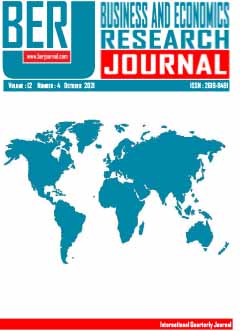Türkiye için Feldstein-Horioka Hipotezinin Sınanması: Fourier Yaklaşımı
Testing of the Feldstein-Horioka Hypothesis for Turkey: A Fourier Approach
Author(s): Ömer AkkuşSubject(s): Economy, National Economy, Financial Markets
Published by: Adem Anbar
Keywords: Feldstein-Horioka Hypothesis; International Capital Mobility; Investment; Saving; Fourier Cointegration;
Summary/Abstract: This study investigates the Feldstein-Horioka hypothesis, which addresses the relationship between domestic investments and savings within the framework of capital mobility whether it is valid for Turkey in the period of 1980-2020. The Fourier KPSS stationarity test based on the KPSS test in revealing the stationarity levels of the variables is applied. The cointegration relationship between variables is revealed through the Fourier cointegration which allows structural change in the cointegration relationship and Shin cointegration test. The coefficient of the model established in the study is estimated by the Dynamic Ordinary Least Squares method. The results indicate that there is a long-run relationship between domestic savings and investments when structural change is allowed. It is revealed that domestic savings are insufficient to meet investments while it is determined that the saving coefficient considered as an independent variable in the study is close to zero and the capital mobility is high. As a result, it has been determined that the Feldstein-Horioka hypothesis is not valid for Turkey. Since Turkey is faced with a lack of savings in meeting domestic investments, the development of policies that encourage the entry of foreign capital into the country will allow more investments to be made in the country and contribute to its faster growth.
Journal: Business and Economics Research Journal
- Issue Year: 12/2021
- Issue No: 4
- Page Range: 787-798
- Page Count: 12
- Language: Turkish

